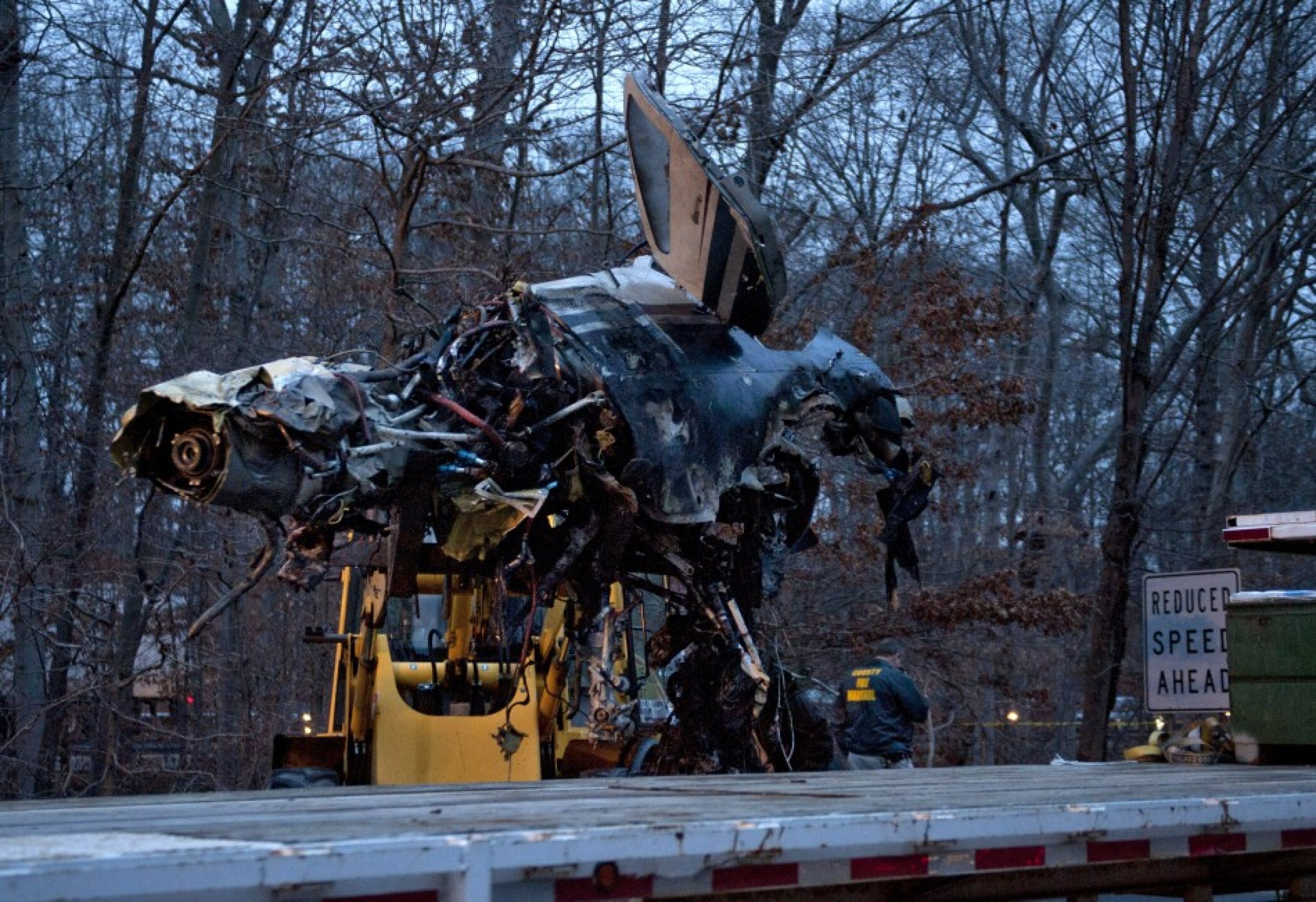Plane Crash on New Jersey I-287: Wreckage Spans Half a Mile [PHOTOS]
A devastating plane crash on New Jersey's I-287 left five dead in a business trip turned sour.
According to the New York Times, CEO Scott L. Bok of Greenhill & Company, an investment bank based in New York, said that two of his employees, Jeffrey F. Buckalew, 45, and Rakesh Chawla, 36, had been flying from New Jersey to Georgia for a short business meeting, after which Buckalew and his family, which included a wife and two kids, planned to stay in the area for the holidays. Chawla was scheduled to take a commercial flight back home after the meeting.
But all those plans were laid to waste just 14 minutes after a Socata TBM-700 turboprop plane, owned and operated by Buckalew, took off from Teterboro Airport at 9:51 a.m, according to reports Tuesday morning. Buckalew, his wife, Corinne, their son, Jackson, their daughter, Meriwether, and Chawla all died after the plane spiraled out of control after disappearing from air traffic control radar screens more than three miles in the air.
What's more is that for a small plane, the wreckage was huge. The plane first hit the southbound lanes of I-287 near exit 33, crashed through the wooded median and then continued into the northbound lanes. Pieces of the plane were scattered across half a mile, causing all lanes to be closed immediately after, though they were reopened by the evening.
Ironically enough, Buckalew spoke a few minutes after takeoff with air-traffic controllers about icing, something that could very well have caused the crash, according to Robert Gretz, a senior air safety investigator for the National Transportation Safety Board, who spoke to the New York Times. Gretz, who listened to a recording of Buckalew's dialogue with controllers also said that Buckalew didn't sound distressed when talking about the condition and that it was still unclear if he was reporting ice on his wings or asking about icy areas.
CBS News reports that Buckalew was told to maintain a 10,000-foot altitude as he headed southwest over northern New Jersey. He was also warned about accumulations of ice particles, known as rime, in the clouds.
There are reports of moderate rime, said one controller. If it gets worse let me know and when center takes your handoff I'll climb you and maybe get you higher.
We'll let you know what happens when we get in there, Buckalew responded. And, yeah, if we could go straight through it, that's no problem for us.
Seconds later, another controller told another pilot (not on the Socata TBM-700) about reports of severe icing at 14,000 feet.
CBS News explained how rime could have affected the Socata TBM-700:
Ice can form on airplanes when temperatures are near freezing and there is visible moisture, such as clouds or rain. The ice adds weight to an aircraft, and rough accumulations known as rime interrupt the flow of air over wings. In extreme cases, a plane can lose so much lift that it falls out of the sky.
The Times reported that the Federal Aviation Administration records confirmed that Buckalew was a licensed pilot and owned the Socata TBM-700.






© Copyright IBTimes 2024. All rights reserved.











